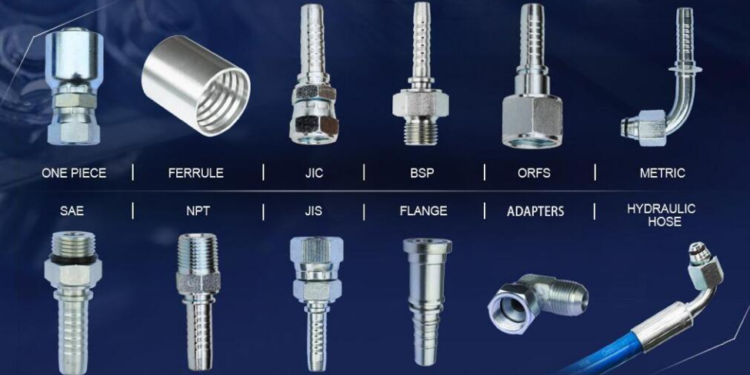Hydraulic Hose Supplies: Don’t Get Hosed by Poor Quality

Part of being a savvy business in the hydraulic industry involves understanding the importance of having high-quality hydraulic hose supplies. The right fittings ensure the safety of your employees, the productivity of your machinery, and the longevity of your equipment. So it’s no surprise that being informed pays dividends.
However, you might find yourself spoiled for choice with suppliers and products on the market. Thus, it can be challenging to know where to turn for the best products and services. The worst thing you can do, however, is ending up working with unreliable sellers of subpar products.
Let’s discuss some essential factors to consider when purchasing hydraulic hoses and fittings.
Buying From Trusted Sources
When it comes to hydraulic hose supplies, it’s crucial to purchase from a reputable supplier. Look for a company with a long-standing reputation for quality products and exceptional customer service. A trusted supplier will have the knowledge and expertise to help you select the right products for your specific needs. They might even guarantee ongoing support as required.
Know What You’re Buying
When it comes to hydraulic hoses, not all products are created equal. It’s essential to understand the different types of hydraulic hoses and their applications. For example, low-pressure hydraulic hoses are suitable for small machinery. Meanwhile, high-pressure hydraulic hoses are required for heavy-duty machinery.
In addition to understanding the type of hose, you must also consider the materials used in its construction. Hoses are typically constructed from synthetic rubber, thermoplastic, or a combination of both. The materials used will affect the hose’s flexibility, durability, and resistance to chemicals and heat.
Don’t Just Buy Based On Price
While cost is always a consideration when purchasing hydraulic hose supplies, it shouldn’t be the only factor you consider. Low-cost hoses may be tempting, but they may not offer the durability and safety you require. It’s essential to balance cost with quality and consider the long-term costs of maintaining and replacing hoses that don’t meet your needs.
Avoid Generic Hose Fittings
In addition to selecting the right hydraulic hoses, it’s essential to choose compatible fittings. Generic fittings may be cheaper, but they may not be compatible with your specific hoses or machinery.
Using the wrong fittings can cause leaks, damage to machinery, and even injuries to employees. Always select fittings from reputable manufacturers that are designed to work with your hoses and machinery.
Look for Variety
Hydraulic systems can be complex, and they require a wide range of hoses and fittings to operate correctly. When selecting a supplier, look for a company that offers a wide range of products to meet all your needs. From high-pressure hoses to low-pressure hoses, fittings, adapters, and more, a reputable supplier will have everything you need.
Choose a Hose Supply Specialist
While some companies offer hydraulic hoses as part of their broader product range, it’s often best to work with a hose supply specialist. A specialist will have in-depth knowledge of hoses, fittings, and related products.
Know Your Material and Finish Choices
When selecting hydraulic hoses and fittings, you may have several material and finish choices. For example, hoses may be coated with a variety of finishes to protect them from harsh environmental conditions or chemicals. Favour widely preferred choices that promise safety and durability, like stainless or anodized goods.
Industry Standard Ratings
These ratings indicate the pressure and temperature capabilities of the hoses and fittings and their resistance to wear and tear. By selecting products that meet or exceed industry standards, you can ensure the safety and reliability of your hydraulic systems.
Conclusion
Functional pipes are critical components of any hydraulic system, and it’s crucial to ensure you’re using hydraulic hose supplies. When shopping for accessories, weigh your options and make informed choices. Remember, investing in goods is an investment in the safety and reliability of your system.






